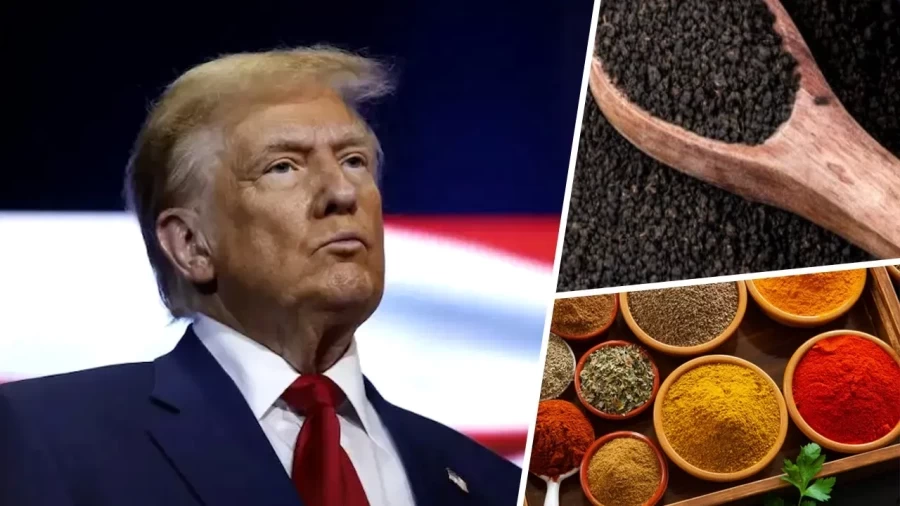
Relief for Indian spice, tea exporters as US eases tariffs on agri products
NEW DELHI : Indian spice traders and tea growers are set to benefit from a major tariff reduction announced by US President Donald Trump, who has moved to ease import duties on nearly 200 food, farm and agricultural goods. The decision follows rising domestic concerns in the US about escalating prices linked to Washington’s trade barriers.
Among the products tucked into the revised list are an array of Indian exports, black pepper, cloves, cumin, cardamom, turmeric, ginger, several tea varieties, mango derivatives and nuts such as cashew. India shipped spices worth over $500 million to the US in 2024, while tea and coffee exports amounted to nearly $83 million. The US also sourced $843 million worth of cashew nuts globally, with India supplying roughly one-fifth of those imports.
However, the relief stops short of India’s biggest agri-linked revenue earners. High-value shipments of shrimp, other seafood varieties and basmati rice remain excluded. In addition, Indian gems, jewellery and apparel continue to face steep 50% US tariff barriers, pending a broader trade agreement, one Trump has linked to New Delhi curbing imports of Russian oil and increasing purchases of American energy. Overall, the exemptions apply to a little over $1 billion of India’s qualifying agricultural exports.
According to officials in New Delhi, nearly 50 processed food categories, with export values estimated at $491 million last year, stand to gain the most. This includes coffee and tea extracts, cocoa-based items, fruit juices, pulp products, mango preparations and vegetable waxes. Spices, valued at $359 million, are expected to be the next major beneficiary. Another 48 types of fruits and nuts, among them coconuts, guavas, mangoes, cashew nuts, bananas, areca nuts and pineapples, will also see an advantage, though these accounted for only about $55 million in exports. Collectively, the revised list touches nearly one-fifth of India’s $5.7 billion agricultural shipments and roughly 40% of India’s total goods exports worth $86 billion last year.
“These reductions will provide a level-playing field for these agri exports which were disadvantaged due to higher tariffs on India’s exports vis-a-vis its competitors. Our products are well-placed to gain due to existing supplier credibility, established distribution networks, and strong diaspora-driven demand – factors that provide a competitive edge in the US,” an Indian government official said.
Trump’s decision, formalised through an executive order, comes amid simmering voter frustration over living costs, which recently contributed to a Republican setback in bypolls as Democrats campaigned heavily on affordability. The US president has simultaneously floated issuing $2,000 rebate cheques using tariff revenues and has initiated an investigation into the meatpacking sector, responding to public anger over surging prices.
While Trump maintains that his tariff regime has not raised household expenses, US industry groups and policy commentators have welcomed the rollback. His stance has drawn criticism from opponents who accuse him and his supporters of ignoring economic hardships. As one critic quipped, “My budget and my reality are not on speaking terms anymore.”
The debate over economic optics intensified after Trump hosted a lavish Gatsby-themed Halloween celebration at Mar-a-Lago and began constructing an expansive ballroom, reportedly larger than the one at the White House, drawing fresh scrutiny over what detractors describe as an increasingly ostentatious presidential aesthetic.

